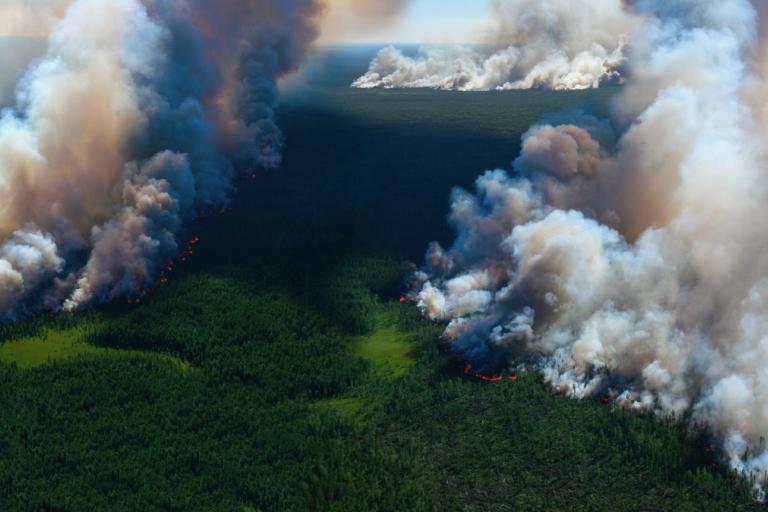Particulate matter from wildfires causes globally over 100,000 annual deaths – impacts of fire smoke and desert dust are unevenly distributed between continents
Fine particles from wildfires cause over 100,000 premature deaths each year around the world, according to the Lancet Countdown 2025 report. The study shows that while global wildfire smoke particle concentrations have not increased significantly, the number of people exposed to harmful smoke has grown due to population increase, particularly in fire-prone regions.
- News was produced by:
- Finnish Meteorological Institute (FMI)

As part of the report, researchers from the Finnish Meteorological Institute modeled how the fine particles from forest fires spread in the atmosphere and estimated how much people are exposed to harmful concentrations. The analysis is based on the satellite-based observations of fires that were used as an estimate for smoke emissions.
The year 2024 was the peak year for mortality with approximately 154,000 deaths due to fire smoke, slightly exceeding the previous year 2023. Compared with the previous report, the fire smoke indicator currently estimates also the total mortality from fire smoke. From 2003–2012 to 2015–2024, the average mortality increased by 9%, with low Human Development Index (HDI) countries seeing the biggest increase (46%). However, the increasing trend in mortality from fire smoke is mainly caused by the growing population exposure rather than worsening smoke conditions. While local fire activity has intensified in some areas, such as western parts of Canada and the United States, the global average wildfire smoke particle concentration did not show a clear increasing trend.
- WMO Member:
- Finland
- Region:
- Region VI: Europe

